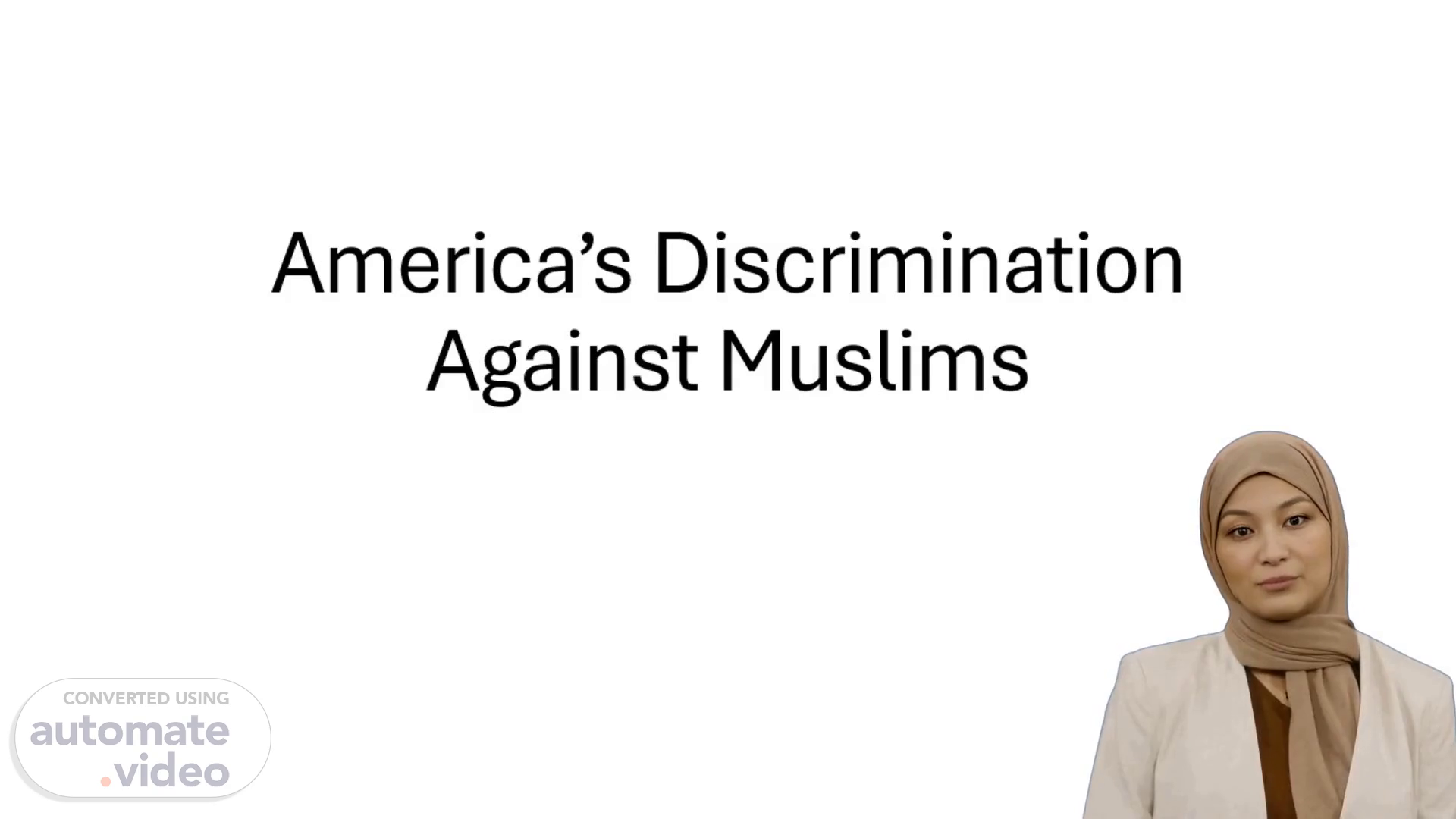Scene 1 (0s)
[Virtual Presenter] The presentation welcomes us to explore the topic of discrimination against Muslims in America, examining key issues and challenges faced by Muslim Americans, including legislation and policies affecting their lives..
Scene 2 (15s)
[Audio] The USA Patriot Act, also known as the Patriot Act, was passed in response to the September 11 attacks. This legislation expanded the authority of law enforcement agencies to gather intelligence and conduct surveillance on individuals and organizations suspected of terrorism. The act also increased the government's ability to monitor financial transactions and access private records..
Scene 3 (39s)
[Audio] The Patriot Act was enacted in response to the 9/11 terrorist attacks, allowing law enforcement and intelligence agencies to investigate law-abiding Americans, predominantly Muslim Americans, without warrants, impose gag orders, and detain individuals indefinitely without due process, solely based on suspicion of affiliation with terrorism..
Scene 4 (1m 2s)
[Audio] The Patriot Act has had several effects on Muslim Americans. The erosion of their privacy rights is one significant impact. The Act allows law enforcement agencies to monitor and collect data on individuals and communities without their knowledge or consent. This has led to widespread surveillance and monitoring of Muslim Americans, particularly those who are perceived as being affiliated with terrorist organizations. Another effect is the increased scrutiny and profiling of Muslim Americans, including airport security checks and FBI investigations. Many Muslim Americans have reported feeling targeted and harassed by law enforcement agencies, leading to feelings of mistrust and fear. Furthermore, the Act has also led to the detention and deportation of many Muslim immigrants and refugees, often based on flawed intelligence or mistaken identities. These effects have created a sense of uncertainty and insecurity among Muslim Americans, making it difficult for them to feel safe and secure in their own country..
Scene 5 (2m 3s)
[Audio] The data reveals that the Patriot Act was met with disapproval from Muslim Americans. Moreover, its popularity decreased significantly among those who were not born in the United States. This implies that there may have been apprehensions about the effects of this legislation on their daily lives and social circles..
Scene 6 (2m 21s)
[Audio] The Trump Travel Ban, also known as Executive Order 13769, was signed by President Donald Trump on January 27, 2017. The order aimed to restrict travel from seven predominantly Muslim countries: Iran, Iraq, Libya, Somalia, Sudan, Syria, and Yemen. The ban targeted nationals from these countries who were seeking entry into the United States, citing national security concerns. However, critics argued that the order was discriminatory and unconstitutional, targeting specific religious groups. The ban sparked widespread protests and legal challenges, ultimately leading to its modification and eventual repeal..
